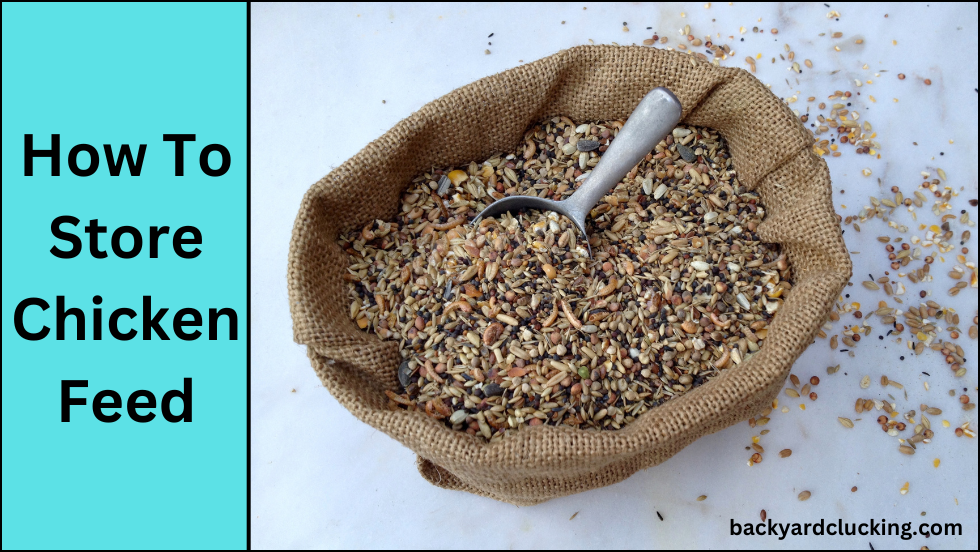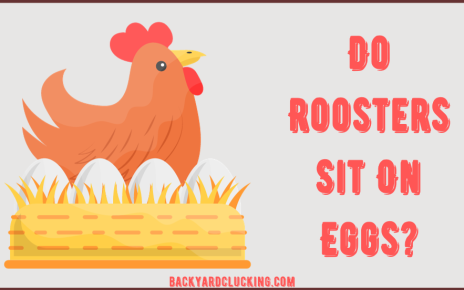Are you a poultry farmer seeking information on how to store chicken feed? This is the right place! To ensure your birds get clean food that won’t go bad, learn the fundamentals of storing bird seeds.
This blog post will explore topics such as suitable storage containers preventing mold and contamination. Whether you’re just starting your chicken-raising journey or have experience, this blog post has something for everyone. Let’s start!
How To Store Chicken Feed?
Storage is vital for chicken feed to ensure it’s good, nutritious food and won’t have mold or pests. If storage is terrible, pests can come in, and it can have a pest problem.
The Best Way to Store Chicken Feed
Store chicken feed in a dry, cool place. Avoid areas with wide temperature swings or high humidity levels. The storage container should be clean, airtight, and resistant to rodents.
Suitable Storage Containers
Store chicken feed in metal bins with secure lids. They’re rodent-proof, easy to clean, and can be kept outdoors. Plastic containers can also be used, but make sure they’re food-grade and have tight-fitting lids.
Preventing Pest Infestations
Storing feed mannerly will stop pests from entering the area. Use rodent-proof containers and check them often for signs of pests. To control insects, use natural deterrents like diatomaceous earth.
Rotating Feed Stocks
Store chicken feed properly by rotating your stocks. Use the oldest feed first, and check the bag’s expiration date before feeding your chickens.
Check Feed Regularly
Check the feed often for signs of spoilage. Look for moisture, mold, pests, and strange smells. If the feed is bad, throw it out and risk your chickens’ health.
How Long Does Feed Keep?
A bag of chicken feed can last up to six months if kept dry and in good condition. After that, the nutritional value may decrease. However, the shelf life depends on the type of feed and storage conditions. Check the manufacturer’s guidelines to find out how long to store it.
Effective Strategies for Storing Chicken Feed
Now let’s summarize the effective strategies for storing chicken feed:
- Keep the feed dry and well-ventilated to avoid humidity and mold development.
- Store food in airtight containers, free of dirt and impenetrable to rodents.
- Metal containers with tight-sealing lids are great, but food-safe plastic bins with secure lids will also do.
- Check the storage area for signs of pests regularly.
- Use diatomaceous earth to keep insects away.
- Always use the oldest feed. Rotate your feedstocks.
- Look for moisture, mold, pests, and smells that are out of the ordinary.
By following these strategies, your chicken feed stays fresh and nutritious.
The importance of chicken feed storage for backyard chicken keepers
- Optimizing Feed Purchase: Buy as much feed as you can store and use within its shelf life. Overstocking can lead to waste due to spoilage.
- Considering Feed Type: Feed with different ingredients has different storage requirements. For example, pelleted and crumbled feed lasts longer than mash feed.
- Sealing Feed Bags: If you don’t have a storage bin, squeeze out as much air as possible before folding and closing the bag after each use.
- Location Matters: Keep your feed dry and in a place with good airflow to prevent moisture and pests from getting it.
- Monitoring Feed Storage: Check feed regularly for signs of spoilage, pests, and feed texture or smell changes. If you’re unsure, throw out the feed or risk your chickens’ health.
- Continuous Learning: Stay updated on best practices for poultry feed storage. There is always something new to learn about poultry keeping!
FAQs
What is the best container to store chicken feed in?
The best container for chicken feed depends on your needs. But metal bins with secure lids are generally considered the best. Also, food-grade plastic containers with secure lids can be an effective and economical alternative.
How long can chicken feed last?
A bag of chicken feed can last up to six months under optimal storage conditions. However, this can vary depending on feed type and storage conditions. Always check the manufacturer’s instructions regarding the shelf life of the specific feed you’ve purchased.
How do you save chicken feed?
To save chicken feed, follow these tips: -Use feeders that prevent spillage -Make sure chickens eat the feed before adding more -Use leftover kitchen scraps as chicken feed.
Conclusion
Looking after their feed is essential if you want your backyard chickens to be healthy and productive. It’s a good idea to think about the type of feed and its expiry date and ensure it’s always appropriately stored. Inspecting the feed and stopping pests from getting to it will help maintain its high quality. All this effort is worth it when you consider how vital feed is to the well-being of your chickens.




